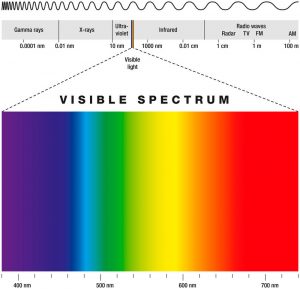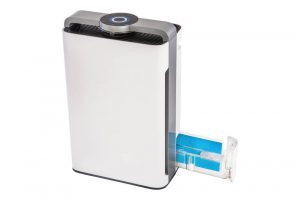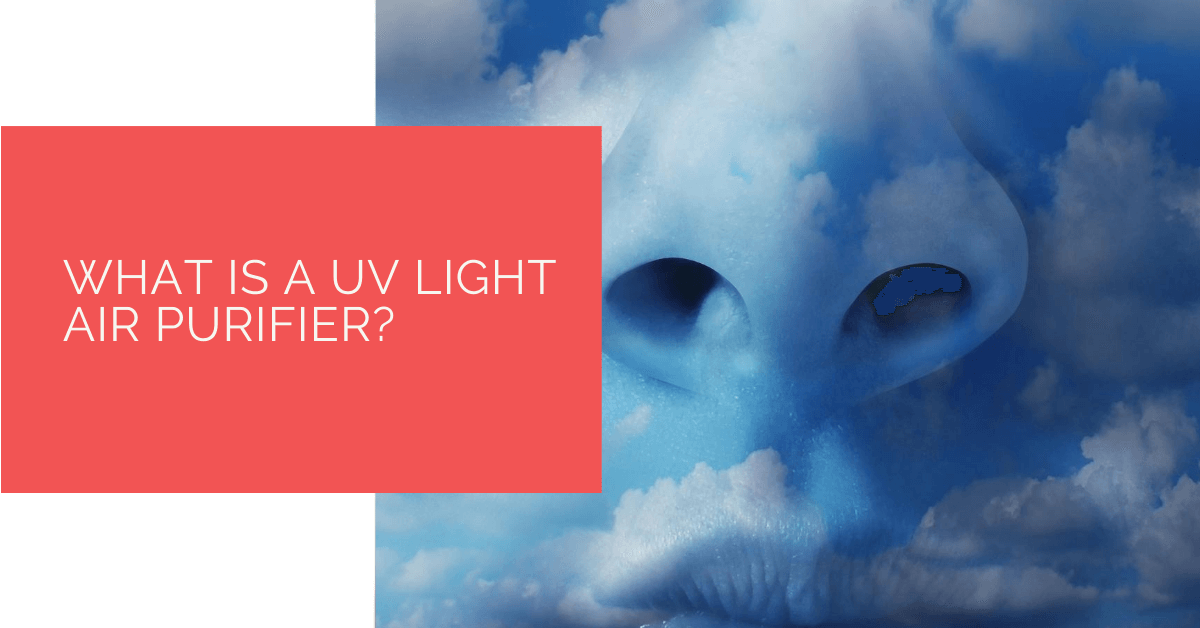The air that we breathe is critical to our health, whether it be mould spores, germs, viruses, or pollen, the particles in the air inside your home can wreak havoc on your health.
Air purifiers can do a lot to reduce risks and to improve your health by improving the quality of the air in your house. However, there are so many options out there! This makes most shoppers feel overwhelmed and confused when looking for an air purifier.
Adding to the confusion UV air purifiers have recently come onto the market, and many do not understand what they are or how and if they work.
This article will explain precisely what UV air purifiers are and what they do. The information in this article will show you why they are such a good option and hopefully help you to avoid some confusion when buying air purifiers.
Contents
Key Takeaways
- UV light air purifiers use ultraviolet light (UV-C) to kill harmful germs, bacteria, and pathogens in the air, offering a more comprehensive air purification solution than traditional air purifiers.
- HEPA filter systems and Ionic purification are two other common air purification methods, but they do not have the capability to kill viruses, pathogens, or bacteria in the air, unlike UV light air purifiers.
- Combining UV light technology with traditional air filters can create a sterile and safe indoor environment, making UV air purifiers a valuable option for improving air quality, especially during health crises.
What Is UV Light Air Purification?
UV light air purifiers go a step further than traditional air purifiers because they kill bacteria in the air of the room that they are running in. They use ultraviolet light (UV) to kill harmful germs, bacteria, and other pathogens in the air.
What Is Ultraviolet Light?
To understand how UV lightwaves kill bacteria, we first need to understand what ultraviolet light is. Ultraviolet light belongs to the electromagnetic spectrum, which means that it is a type of radiation. While this may sound scary, there is no need to worry, not all forms of radiation are dangerous to humans. Light in itself is a form of radiation.
The wavelengths in UV light are very short, and they are invisible to the human eye. Ultraviolet light waves are shorter than regular light waves and longer than Xrays. Although they are harmless to humans, it is capable of killing bacteria and pathogens in the air.
Ultraviolet light can be divided into different categories: UV-A, UV-B, and UV-C. The first two categories are well known since they are feared as dangerous sun rays, the ones that can cause skin cancer and sunburns. The third category, UV-C, is less known and is the type of light that UV air purifiers use. It is virtually harmless to humans, however, has a lethal effect on bacteria and pathogens, much more so than the other forms of UV light.
With this brief introduction to and explanation of UV light, you now have the basis for understanding UV light air purifiers. So, let’s take a closer look at the actual air purifiers.

Understanding HEPA and Ion Air Purifiers
As we mentioned before the world of air purifiers can be confusing and overwhelming. However, it boils down to three main factors: HEPA filter systems, Ionic purification, and UV light. The good news is that we have already explained UV light, so let’s briefly examine the two filtration methods that are commonly used along with UV lights.
HEPA Air Purifiers
HEPA stands for “High-Efficiency Particulate Air”. This kind of mechanical filter cleans the air by trapping allergens, smoke, and certain odours as it forces air through its many layers of mesh.
Ionic Purifiers
Ionic purifiers do not force air through them in order to purify it. Instead, they put a negative charge in the room’s air which in turn makes dust particles, including pathogens and allergens, fall to the ground instead of floating around.
One system isn’t necessarily better than the other; both HEPA filters and Ion purifiers have pluses and minuses. The focus of this article, however, is to understand the UV light connection to air filters. So we won’t go into further detail on these two.
How Does a UV Light Air Purifier Help?
The main defect of HEPA and Ion air purifiers is that they are not capable of actually killing viruses, pathogens, or bacteria in the air. UV lights are the only technology currently available that can do this.
By combining the benefits of traditional air filters with the powerful sterilizing effect of UV light purifiers, you can guarantee a sterile and safe environment. UV light air purifiers work by forcing air past UV lamps, which as we have seen have the potential of disinfecting the air by killing bacteria. The air is then passed through a traditional filter to get the best and purest air possible.

Heat Pump Source: Reliable Heating and Cooling Solutions
At Heat Pump Source, we take pride in our unwavering commitment to serving the UK with top-tier HVAC solutions. From the efficiency of heat pumps and the cool relief of air conditioning to the warmth of boilers, radiators, and underfloor heating, our dedicated team is always at the forefront of innovation. We understand the unique needs of every household and business, and we strive to provide dependable health and cooling products and services that are tailored just for you. Ensuring your comfort and satisfaction is our utmost priority. Whether you have questions, need guidance, or require support, we’re always here to assist. Please don’t hesitate to contact us; we’re eager to be of service.
Conclusion
Air purifiers that combine HEPA or Ion technology with a UV filter that actually sterilizes the air pushed through it are as complete of a setup as you can ask for.
Especially with the health crisis that we are going through right now, the need to purify and sterilize the air in our homes is more important than ever.
It is worth considering purchasing a UV air purifier. With a UV air purifier, you can rest assured that you will have as clean and sterile of an environment as possible.
About the Author
At Heat Pump Source, our articles are the product of a collaborative effort among a team of highly skilled HVAC experts. Our dedicated professionals, hailing from diverse backgrounds in heating, ventilation, air conditioning, and refrigeration, contribute their extensive knowledge and experience to every piece of content. This multidisciplinary approach ensures comprehensive coverage. Our commitment is to deliver authoritative, reliable, and tailored advice to meet the unique needs of every household and business across the UK.

